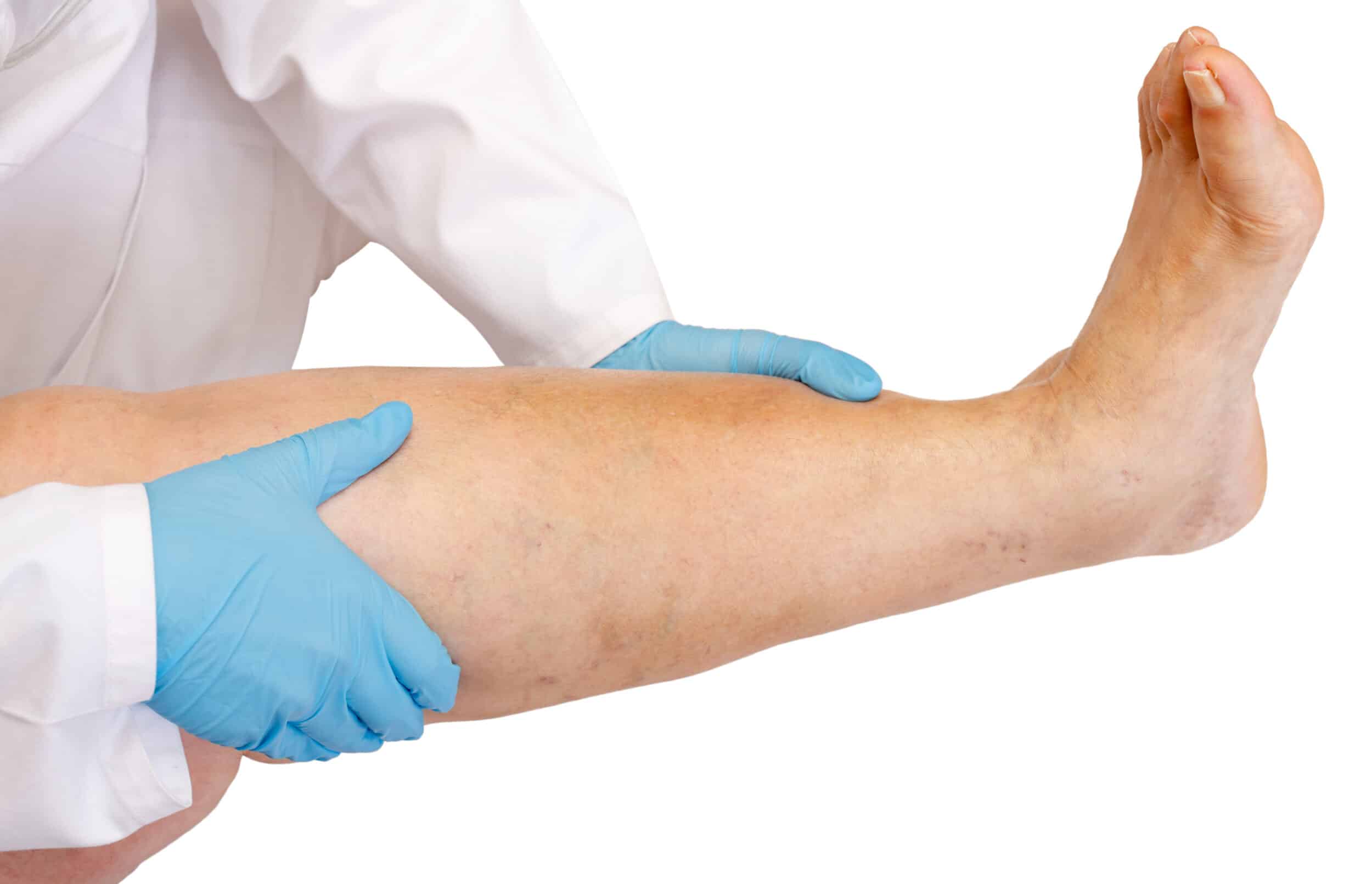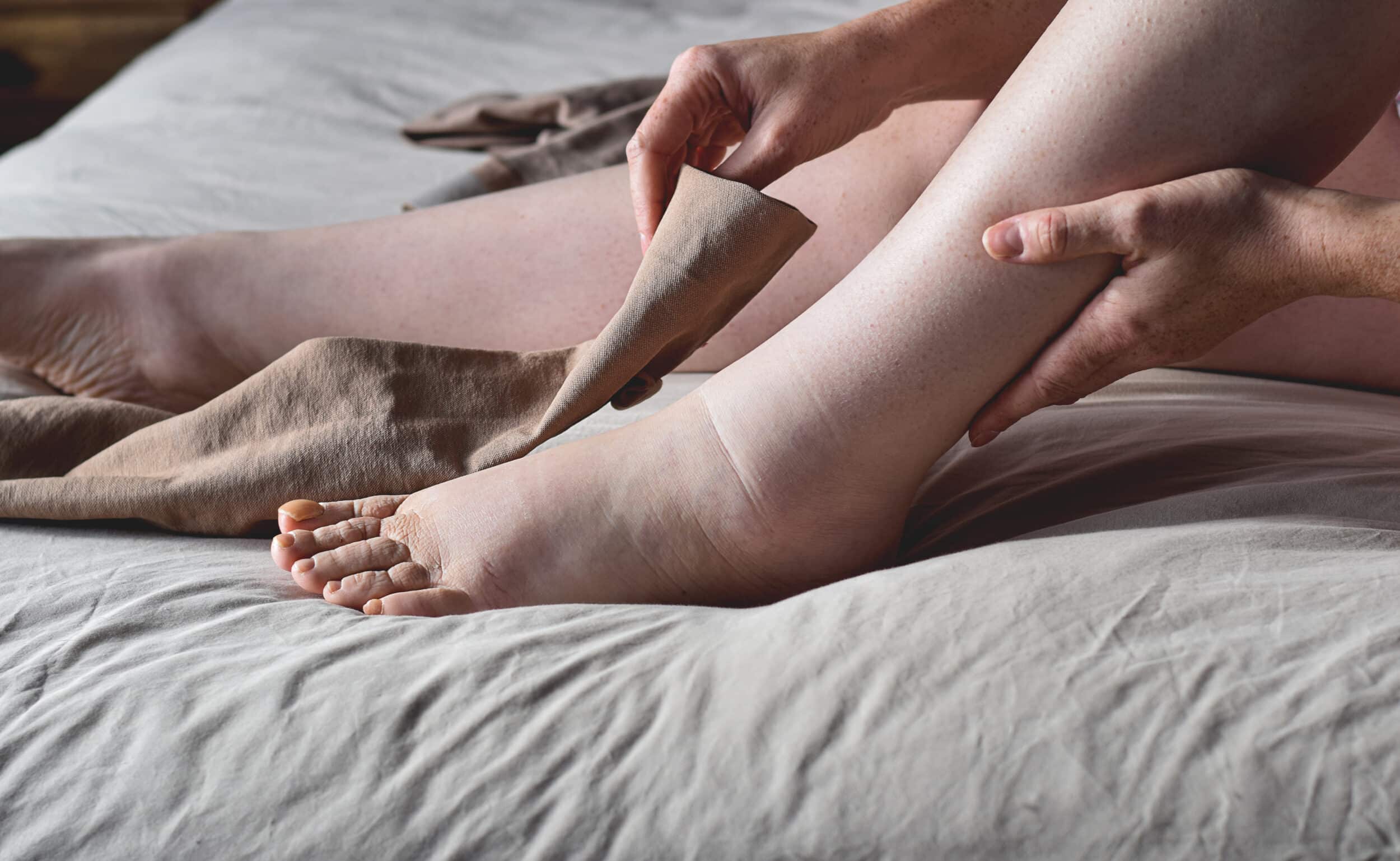
Welcome to McWilliams Vein Center, where expert care meets advanced technology. Dr. McWilliams, a board-certified diplomate of the American Board of Venous and Lymphatic Medicine, has specialized in diagnosing and treating venous disease since 2006. Our practice is dedicated exclusively to vein health, offering the latest, most advanced diagnostic tools and minimally invasive treatments to detect and treat the root causes of leg swelling and improve your vascular health.
Understanding Leg Swelling and Venous Health
Leg swelling is a common issue that can make everyday activities uncomfortable. While occasional swelling may result from prolonged sitting, standing, or high salt intake, persistent or worsening swelling often signals an underlying venous condition. At McWilliams Vein Center, we specialize in diagnosing and treating vein-related causes of leg swelling, helping patients regain comfort and mobility.
One of the most common culprits is chronic venous insufficiency (CVI), where weakened vein valves struggle to push blood back to the heart. This leads to blood pooling in the lower legs, causing edema (swelling), heaviness, and discomfort.
Left untreated, CVI can progress to more serious complications, such as varicose veins, skin changes, and venous ulcers. Other venous-related causes of leg swelling include deep vein thrombosis (DVT), lymphedema, and post-thrombotic syndrome. DVT occurs when a blood clot forms in a deep vein, potentially leading to dangerous complications if not addressed. Lymphedema, often linked to venous disease, results from impaired lymphatic drainage, leading to fluid buildup and swelling that worsens over time.
Early Signs of Lymphedema and How It Progresses
Lymphedema often starts subtly, with mild swelling in the feet, ankles, or lower legs that worsens throughout the day. At first, the swelling may go away with rest, but it can become persistent over time.
Other signs include heaviness, tightness, and skin changes such as thickening or discoloration. Lymphedema can lead to painful skin infections, mobility issues, and permanent tissue damage if left untreated. Catching it early allows for more effective management and better long-term outcomes.
How to Reduce Your Risk of Complications
While some causes of lymphedema, such as genetics and previous surgeries, cannot be avoided, you can take steps to lower your risk:
- Maintain a healthy weight to lessen pressure on your veins and lymphatic system.
- Stay active with regular walking, swimming, or other low-impact exercises to promote circulation.
- Avoid prolonged sitting or standing to prevent fluid buildup in the legs.
- Wear compression garments as recommended to support proper fluid drainage.
- Monitor cuts, scrapes, and infections, especially if you have a history of vein issues, as these can trigger inflammation and swelling.
Advanced Diagnostic Techniques to Evaluate Leg Swelling
Diagnosing leg swelling correctly requires expertise and state-of-the-art tools. At McWilliams Vein Center, we use venous ultrasound to assess blood flow and detect venous insufficiency. Doppler studies to check for blood clots that may contribute to swelling. By pinpointing the cause of your swelling, Dr. McWilliams and our team can tailor a leg swelling solution for you.
Lifestyle Changes for Leg Swelling
Managing lymphedema effectively often requires adjustments to daily habits. Small changes can significantly improve symptoms and prevent worsening swelling:
- Elevate your legs at rest to promote fluid movement.
- Stay hydrated to keep your lymphatic system functioning properly.
- Engage in gentle movements, such as stretching and lymphatic massage, to stimulate circulation.
- Wear loose clothing to avoid restricting lymphatic flow.
- Follow a balanced diet full of anti-inflammatory foods to support overall vascular health.
Supportive Medical Care for Leg Swelling
For persistent leg swelling, medical treatments can provide relief and prevent complications. We offer a broad spectrum of treatment options, ranging from conservative care like compression hosiery and lifestyle management to specialized minimally invasive techniques with no downtime. Our advanced treatments include endovenous laser ablation (EVLA,) radiofrequency ablation (RFA,) Varithena®, VenaSeal™, and ultrasound-guided sclerotherapy.

Why Choose McWilliams Vein Center?
McWilliams Vein Center is dedicated exclusively to treating venous and lymphatic conditions, so we're known as the leg swelling experts in Naperville and Wheaton.
Dr. McWilliams, a board-certified phlebology specialist, has nearly two decades of experience helping patients with chronic vein disease, including those suffering from lymphedema. After thousands of successful minimally invasive, catheter-based, and ultrasound-guided vascular procedures, he has unique knowledge and skills that are rare even in the field of venous disease. He has the specialized expertise needed to make vein treatments comfortable and easy for our patients.
We're passionate about helping those struggling with swelling and circulation issues. Our approach goes beyond symptom management—we target the root cause of your leg swelling using the latest medical advancements. With personalized treatment plans, expert care, and a comfortable, state-of-the-art facility, we are here to help you regain comfort and mobility.
Vein Swelling Frequently Asked Questions (FAQs)
Leg swelling can result from fluid retention, vein disease, or lymphatic dysfunction. Chronic venous insufficiency, where blood struggles to return to the heart, is a common cause. As pressure builds, fluid leaks into surrounding tissues, leading to swelling.
Lymphedema is caused by a compromised lymphatic system, leading to fluid buildup that does not easily resolve. Other types of edema, such as those related to heart or kidney issues, stem from different underlying medical conditions.
We offer advanced diagnostics, compression therapy, minimally invasive vein treatments, and lymphedema management techniques to help reduce swelling and improve circulation.
Chronic venous insufficiency can contribute to lymphatic dysfunction over time, increasing the risk of developing lymphedema. Early treatment can prevent many complications.
Help With Leg Swelling in Naperville and Wheaton
If you're experiencing persistent leg swelling, McWilliams Vein Center is here for you. Call us today at 630-474-2600 to book an evaluation at our conveniently located Wheaton, IL, office.

